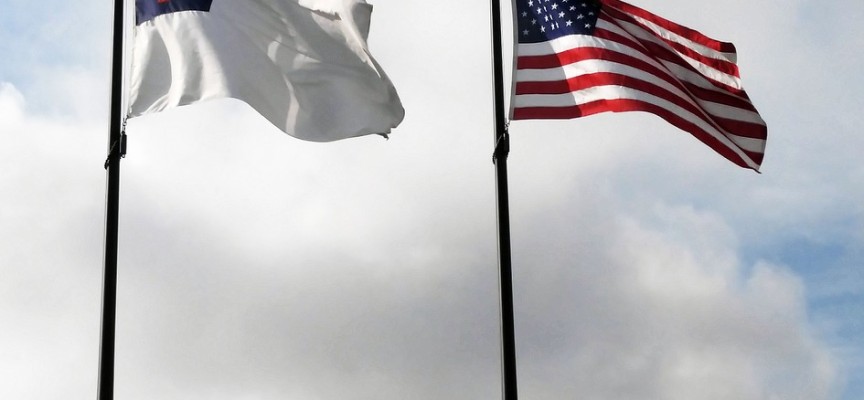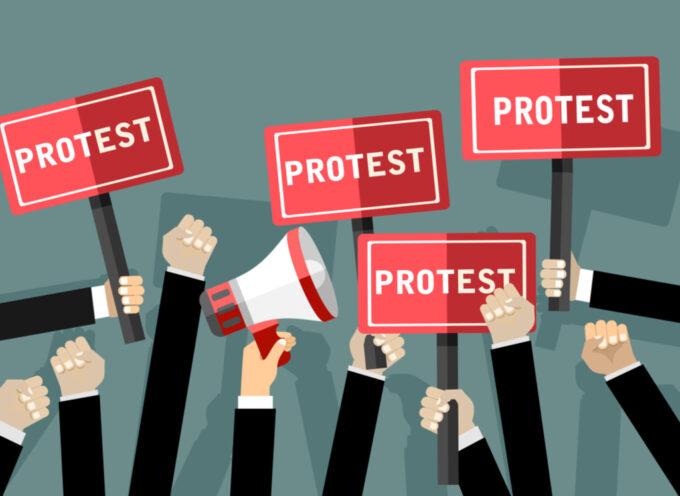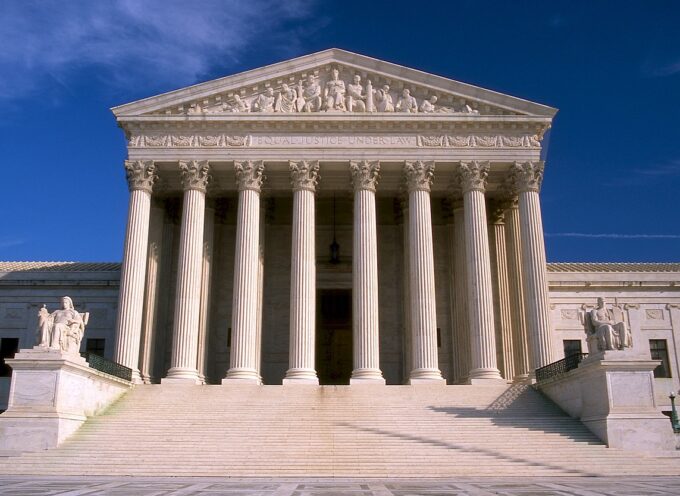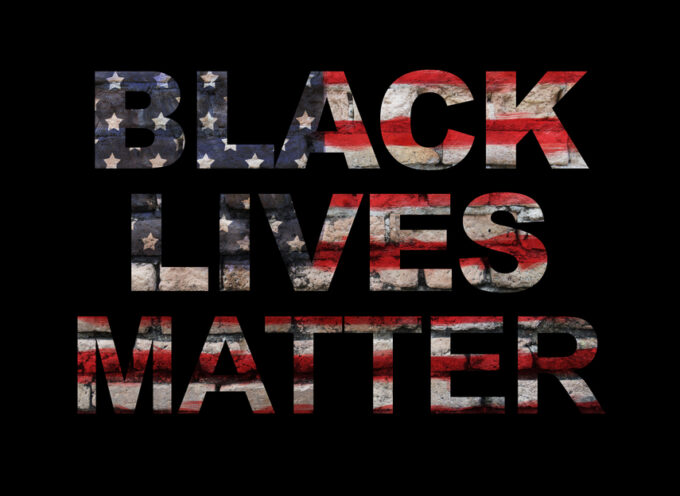“Never discuss religion or politics with those who hold opinions opposite to yours; they are subjects that heat in handling, until they burn your fingers.” So wrote Thomas Chandler Haliburton, a Canadian politician and judge, in 1840. Haliburton is not alone. He was merely expressing what many modern Westerners think: we shouldn’t talk about religion and politics in polite company, especially if the two subjects are joined together and more so if the people in the room do not agree.
This sort of common wisdom is well-intentioned but wrong. It is unhelpful advice and, ultimately, impossible to put into practice. Here are two reasons why Christians should not try to separate religion and politics (even though they should separate church and state), followed by two answers to two common objections.
Two Reasons
First, we human beings are deeply and inescapably religious, and “religion” cannot be defined restrictively as “the worship of a supernatural deity.” When the Bible teaches that all people are deeply and inescapably religious, it is not saying that all people worship a supernatural deity (Rom 1:25). No, the Bible recognizes that some people reject the worship of a supernatural being. Instead, it is saying that all people embrace Someone or Something as ultimate. That Someone or Something sits on the throne of a person’s heart, commanding his loyalties, shaping his life, and offering some sort of salvation. That Someone might be the God of Jesus Christ or the Allah of Muhammad. Alternatively, it might be sex, money, power, or success. But it is a god and a functional savior nonetheless. Often, it is the combination of two or more objects of worship. In other words, the human heart is a playground for the gods.
Second, we cannot separate our private self from our public self. If religion were merely the mental and mystical acknowledgement of a supernatural deity, then we could easily relegate that belief to the confines of our private lives and to certain religious ceremonies. But religion is not that. As the Bible defines it, religion is the central organizer of a person’s thoughts and loves. If a person really and truly embraces the God of Jesus as the Creator and Lord of the universe, that embrace will have a cascade effect, pouring down and out into that person’s beliefs, feelings, values, and actions. Similarly, if a person absolutizes sex or money or power, that absolutization will cascade outward from the private recesses to the public words and actions of that person. We cannot disintegrate the person by severing the public from the private.
Two Objections
Any number of objections might be raised against this view. For now, I will limit myself to acknowledging three objections evangelical Christians have raised.
One objection is that “politics doesn’t save; therefore, we should not waste our time.” The point of the objection usually is that Christians sometimes put more energy and affection into their political views and activism than they do their personal devotion to the Lord or their efforts to share the gospel. In response, we affirm that Christians should put energy and affection into their own spiritual formation and into sharing the gospel. But we also affirm that politics and public life are avenues to exercise our spirituality and witness to the gospel.
Every sphere of culture—art, science, education, business, family, and yes, even politics—is a field of activity provided by God, corrupted and misdirected by sin, and in need of being redirected to its creational design and its true end in Christ. As evangelical Christians living in a democratic republic, we should engage in politics and public life as an aspect of our witness, as a way of seeking the common good for our society.
Of course, this means that our manner of public interaction should be shaped by the gospel. It should be shaped both by truth and love. If a Christian aims at truth but not love, he will become little more than a loud-mouthed amateur lobbyist standing in the public square sweating and yelling at passersby. If a Christian aims at love but not at truth, he will become a sellout, sacrificing biblical convictions in an attempt to seem more loving or more tolerant in a society that has turned against Christian convictions.
Another objection is that “no political party or program encapsulates God’s wisdom and will for the world.” Again, this statement is true but it is not a reason for us to try to separate religion and politics. We must make clear that we are finite and fallen humans, unable to know comprehensively or with certainty how to apply God’s will to certain policy issues or political circumstances. In other words, no political party or platform will encapsulate God’s will for a particular country.
For that reason, we must be clear that the gospel transcends political parties and platforms. It doesn’t transcend them by demoting them into insignificance, but by showing where they have gone right and wrong. As evangelical Christians, therefore, we must continually evaluate our parties, platforms, and policy stances in light of the gospel and biblical teaching. But we must not—in an attempt to make clear that God transcends and sits in judgment of all earthly political programs—make the mistake of trying to separate religion and politics.
Conclusion
In conclusion, all people are religious. We cannot separate our religion from our politics because we cannot separate our heart loyalties from our public life. In one way or another, our heart loyalties will radiate outward into our public words and actions. Exactly how our religious commitments radiate outward and translate into public life is significant, because religion and politics can be mixed in good or bad ways, but whether they radiate outward is not up for grabs.
So let us put the gospel to work for good in our current social, cultural, and political context. Sow it deeply into the soil of our society and culture. Let us faithfully apply our Christianity to the public square, praying that our witness will serve as a compelling preview of God’s coming kingdom. Let us never tire in our efforts for our nation, praying that God would give us the combination of humility and boldness that only he can provide.
Subscribe
Never miss a post! Have all new posts delivered straight to your inbox.








I believe that in a country that at least purports to have a democratic form of government, citizens have a moral duty to speak out or act when any administration engages in actions that violate both God’s law and the law of nations. I’m thinking especially about crimes against humanity: instigating wars of aggression, using torture, raping and otherwise mistreating prisoners, bombing civilians, and employing radioactive and chemical weapons. Silence regarding such matters implies consent.
Agreed!
You stated, “We must make clear that we are finite and fallen humans, unable to know comprehensively or with certainty how to apply God’s will to certain policy issues or political circumstances.” I think I catch your drift, but couldn’t we say that the abolition of abortion is aligned with God’s revealed will? IMO that is pretty cut and dry. Furthermore, sometimes standing firmly for truths that are revealed are really the points where compromise becomes the most difficult if not impossible.
Like I said, I think I understand what you were trying to relay, and perhaps I misread it. Thanks for writing this!
Grayson, yes, you are right. Some issues are more clear than others. I was trying to note that it is more difficult to ascertain how to apply biblical principles on “certain” policy issues or political circumstances. The word “certain” was my way of marking of some issues as more difficult than others. Thanks for taking the time to comment.
The problem with not separating religion from politics/government is that there is more than one religion, and only integrating one with the government and law-making process can lead to enormous problems. Take Saudi Arabia or Iran, their religion is used in the process of making laws, and most everyone disagrees with that. The only difference is, they both have an official religion, while the United States does not. To make laws according to one religion’s beliefs without declaring an official religion would be morally wrong. However, if the United States did declare an official religion, how would that be any different than the countries we disapprove of for the same reasons?